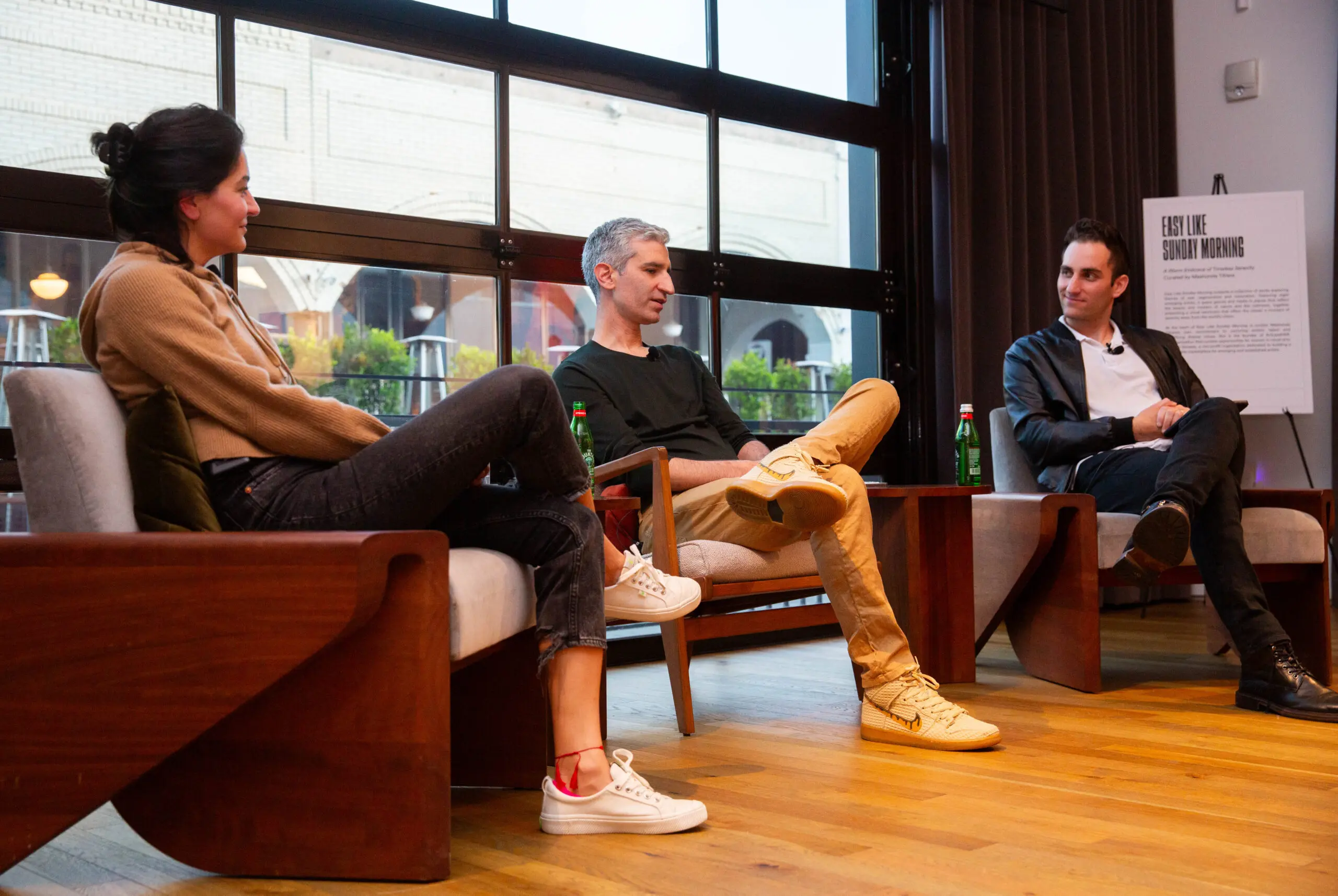
Last month, Lightspeed hosted the latest in its Generative Live event series in Los Angeles, a fireside chat with Peter Sellis, Senior Vice President of Product at Discord, and Farnaz Azmoodeh, Chief Technology Officer of Linktree. Lightspeed has been investing in AI for over a decade, and launched the meetups to bring together founders, builders, and investors working in the generative AI space to trade ideas and learn from each other.
The panel was moderated by Lightspeed Partner Faraz Fatemi, who focuses on investments in consumer platforms. Below are key takeaways from the discussion (that have been edited for clarity), with a focus on three aspects of AI in particular.
Leveling the playing field.
While reflecting on the challenges of integrating AI into their business workflows, Azmoodeh and Sellis both expressed how much the technology has leveled the playing field. At Discord, the company hasn’t historically been focused on deep machine learning, Sellis said. “And then along comes these last two years of AI,” he continued, “where off-the-shelf stuff is as good as 90% of what’s out there” and allows companies to build capabilities they couldn’t previously have afforded. “Before you had to justify, spin up resources now you can be like, ‘What if we just plug it into this off-the-shelf model?’ And it’s 90% of what we would’ve done on our own, but 10x quicker to a prototype. I think that is really exciting, and we’re soon going to start seeing the results of that soon.”
For her part, Azmoodeh shared a similar perspective related to Linktree: “When I think about how we can lean into AI on Linktree as a product, it really comes down to how we can empower small businesses and creators to take advantage of AI,” she said of how their customers use the service to improve their social media presence. “We don’t have a large army of ML engineers or a team of AI experts, but it has become so much easier to get something impactful out the door with commercially available resources.”
A lesson for early-stage startups.
The first wave of AI was often just “technology in search of a problem,” Sellis said. “Oh my God, this is so cool. Look at what it can do,” he said of many early ideas—such as virtual partners—which, to be honest, many people had at almost exactly the same time. “It’s a cool idea, but it’s literally the first thing on everyone’s mind — we all watched the same movie,” he reiterated. But then people became a little more pragmatic and turned their efforts towards mundane business problems. “And so you had all these people who go from zero to 15 million in ARR purely on the efforts of answering support tickets faster than your existing people. And you’re like, ‘Yeah, that sounds good. Let’s do it.’”
AI’s potential.
Sellis and Azmoodeh, who previously worked together at Snap, were both excited to witness how AI will help people better express themselves—a desire shared by much of humanity. Both fondly remembered when Snap introduced beautification features, controversial as they can sometimes be. “What they did was make a whole crop of people who weren’t comfortable expressing themselves, just a little more comfortable expressing themselves,” Sellis said, pondering the ways AI will hopefully do something similar.
Following that thread, Azmoodeh emphasized that AI, like any tool, has special potential to empower those who use it. Speaking of Snap’s filters and Bitmojis, she shared that they personally helped her better tap her own sense of humor. Then, after teaching her in-laws how to use them, she witnessed how her family became more playful in their communication. “They’ve become funny and goofy on Snapchat and we have different conversations as a result,” she said, appreciating the ways the technology has enriched their relationship. Hopefully AI will have a similar effect.
Interested in attending a Generative Live event? Sign up here to receive notifications about future meetups, and be sure to listen to the Generative Now podcast, where AI builders talk about how they’re creating the future.
Authors




